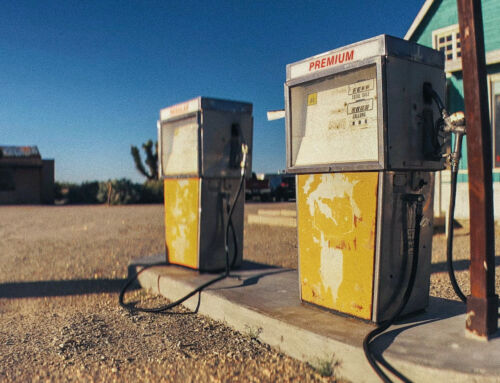View by Topic
Recent Articles
-
Congress Blocks California’s Gasoline Car BanSaturday, May 31st, 2025
-
EPA Will Keep Current Limits for “Forever Chemicals” in Drinking WaterSaturday, May 24th, 2025
-
Court Indefinitely Pauses SEC Climate Rule LitigationSaturday, May 17th, 2025
-
Maryland is About to Regulate Mold But is the Cart Before the HorseSaturday, May 10th, 2025
View by Month/Year
“Green Building Law Update” Headlines
Recent Articles & News from
Stuart Kaplow’s blog
at GreenBuildingLawUpdate.com
- Congress Blocks California’s Gasoline Car Ban: A Legal and Policy Analysis June 1, 2025
- EPA Will Keep Current Limits for “Forever Chemicals” in Drinking Water May 25, 2025
- Court Indefinitely Pauses SEC Climate Rule Litigation May 18, 2025
- Maryland is About to Regulate Mold: But is the Cart Before the Horse? May 11, 2025
Subscribe to the Green Building Law Update!
Stuart Kaplow brings his expertise and extensive experience to the table with his unique digital publication, "Green Building Law Update". Subscribers receive regular updates to keep them informed about important issues surrounding Environmental Law, Green Building & Real Estate Law, as well as the emerging demand for Environmental Social Governance (ESG).
Get fresh content through the lense of Stuart Kaplow's cutting-edge expertise, innovative commentary and insider perspective. Don't miss another issue! Subscribe below.

EU to Ban Greenwashing and Much More
The EU Parliament and Council have reached a provisional agreement on new rules to ban misleading environmental marketing claims.
The agreement reached on September 19, 2023, updates the existing EU list of banned commercial practices and adds to it several problematic marketing habits characterized as greenwashing. The new rules aim is to protect consumers from misleading advertisements and help them make better purchasing choices, but many suggest they go too far as a prior restraint by government prohibiting free speech or other truthful expression before it happens (.. yes, a uniquely American tenet).
These rules may take on far greater significance than only regulating environmental claims in the EU when they are being seen as a precursor to the long delayed updated Federal Trade Commission Green Guides for the Use of Environmental Claims in the U.S. Similar to this action in the EU, in the U.S. the Green Guides help marketers avoid making environmental marketing claims that are unfair or deceptive providing bumpers for businesses for safe lanes in which to respond to increasing consumer interest in buying environmentally friendly products including those that respond to climate change.
What will be banned?
Negotiators from Parliament and Council agreed to proscribe the following:
- generic environmental claims, e.g., “environmentally friendly”, “natural”, “biodegradable”, “climate neutral” or “eco”, without proof of recognized excellent environmental performance relevant to the claim;
- commercial communications about a good with a feature that limits its durability if information is available on the feature and its effects on the durability;
- claims based on emissions offsetting schemes that a product has neutral, reduced, or positive impact on the environment;
- sustainability labels not based on approved certification schemes or established by public authorities;
- durability claims in terms of usage time or intensity under normal conditions, if not proven;
- prompting the consumer to replace consumables, such as printer ink cartridges, earlier than strictly necessary;
- presenting software updates as necessary even if they only enhance functionality features; and
- presenting goods as repairable when they are not.
Next steps
To become law, the provisional deal will now have to get the final okay from both the Parliament and the Council. The European Parliament is made up of 705 members elected in the 27 member states of the enlarged European Union. The members of the European Council are the heads of government of the 27 EU member states. The vote by MEPs is expected to pass overwhelmingly before the end of the year. When the directive comes into force, member states will have 24 months to incorporate the new rules into their law (.. likely by the end of 2026).
Social media widely reported that the provisional agreement was helped greatly by the release of an investigation of the 2022 FIFA World Cup’s claim to be the first carbon neutral tournament of its kind, which investigation found that the organizers’ estimate of the event’s GHG emissions did not accurately reflect the actual carbon footprint. Many in the EU take their football seriously if not their concerns over the environment.
The implications
There is some concern that as a practical matter, the rules will mean that businesses are effectively prohibited from making environmental marketing claims altogether, setting back the role that companies play in the environmental movement and their key place in repairing the world.
And that concern over abridging free speech must be taken seriously in light of activist claims like, “There is no such thing as ‘carbon neutral’ or ‘CO2 neutral’ cheese, plastic bottles, flights or bank accounts. Carbon neutral claims are greenwashing, plain and simple,” attributed to Ursula Pachl, the deputy director of EU consumer advocates BEUC, the umbrella group for 45 independent consumer organizations from 31 countries.
These rules will not go into effect until the late fourth quarter of 2026, but there is trepidation that this action by the EU will put a thumb on the scale of the process of updating the FTC Green Guides in the U.S. Of course, companies doing business in the EU must now begin modifying their business practices to comply. As verboten as the process may be, the rules offer substantive guidance on what subject matter will likely be regulated for U.S. businesses that want to mitigate the risk of greenwashing claims.
Marketing tactics of making false or misleading claims about a product or service’s environmental benefits are greenwashing pure and simple and should not be allowed to continue. U.S. businesses and for that matter companies across the globe would be better served if the FTC were to update the Green Guides in a nation where prior restraint, government action that prohibits speech or other expression before the speech happens, is banned by the First Amendment of the U.S. Constitution.









